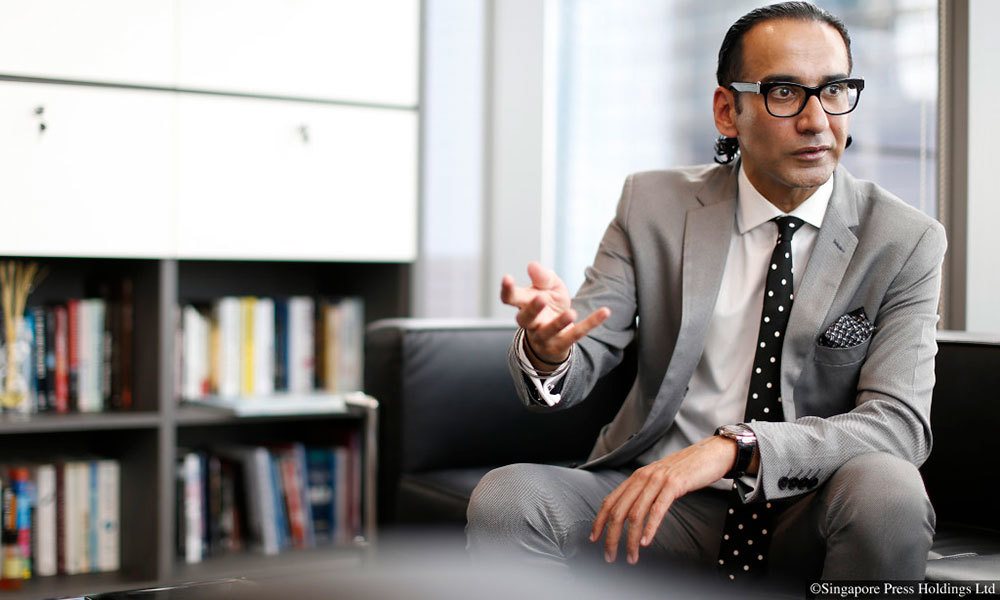
More Pilots Less Moonshots: Lessons on Innovation
A pharma visionary reflects on risk management and measured growth.
With access to healthcare being one of the defining global issues of our time, Raman Singh is on the front lines. As CEO of pharmaceutical giant Mundipharma, he is working on many fronts to bring medications to populations in emerging markets who need them. “Healthcare should be a human right, not a privilege,” says Singh.
An American citizen who grew up in the U.S., Singh earned a degree in mechanical engineering with the intention of joining the Silicon Valley technology world. An early position he accepted as an engineer at a surgical glove factory in Thailand, however, led him to pivot into the pharmaceutical industry.
After stints in leadership roles at Abbott and GSK, Singh joined Mundipharma, one of the world’s largest privately-held firms in its industry, in 2011 and later became its CEO. In that role he has driven significant growth in emerging markets around the globe. Today, the company employs more than 13,000 people.
Associations Now Brand Connection recently spoke with Singh about his decision to establish the company’s global base in Singapore – and what advice he has for business executives looking to make a lasting impact.
Why did you choose Singapore as a base for your company’s emerging-markets activities?
Raman Singh: In 2011, when I had to make a decision on setting up, we were a startup. We wanted to be in a place that would provide us with the right culture to grow the company. Singapore was one of the sites we started evaluating. China, Hong Kong and Thailand came up but Singapore was for me a no brainer. It has a fantastic ecosystem. The infrastructure was world class. The government and regulations were totally business friendly. It was very easy to get going. It was the best decision I ever made. Singapore started out as an emerging markets hub for us. Now it’s a global hub.
Where do you see the most exciting growth opportunities in emerging markets?
Raman Singh: Though its GDP and growth have slowed, China is still a big growth driver. It has now overtaken Japan as the second biggest healthcare market in the world. Africa is also important. We’re seeing technology giving us a way that was not available in the past to reach remote parts of the continent.
There are vast untapped needs for medical care and pharmaceuticals in the developing world—but often economic challenges to connecting patients to care. What do you see as the greatest challenges, and how is Mundipharma working to overcome them?
Raman Singh: Pricing is probably the most obvious when you talk about access, but we kind of forgot see the big picture. The biggest challenge is lack of infrastructure. In most of the emerging world you still don’t have good hospitals and infrastructure to get people from one place to the other.
We still have pockets of specialty centers. In China, for instance, they are in big cities like Beijing. These are centers of excellence. You have people from rural populations gravitating. That’s why you have a waiting period that could go from nine months to over two years to see a specialist and monitor whether you are progressing or not.
The second challenge is regulations. Governments need to ensure that medicines get approved in the right time frame and, once approved, are in in the reimbursed market, so they get into a state pricing system as quickly as possible and access can be given quickly to the individual. That’s where the pharma companies are going to play a big role. We need to ensure the right product reaches the right patient at the right price point. In most of the emerging world basic medication, even for infectious diseases, is not being taken care of.
That brings us back to Singapore. Singapore gave us a perfect platform to do tons of pilots involving technology that will provide better access to care and medications. For instance, we have been looking at remote monitoring of patients. Equipment could be installed in your home. With the advent of drones, you could talk about delivering medication remotely. You don’t need trucks and infrastructure. We are seeing in Africa that some vaccinations and medications are being dropped by drone. Singapore is small enough where pilots can be tried, and if they work, we scale them.
Attracting the best talent is essential for a fast-growing company. How have you created a culture great employees are excited to join and help you continue to build?
Raman Singh: Our turnover rate is half of that of the industry, but we are not for everyone. We have a very strict regime and a precise hiring process.
When I was at the World Economic Forum in Davos, the big theme was AI and machine learning: How do you make sure the talented individuals you have will keep themselves relevant as they move into this new era?
Singapore has done a fantastic job of incentivizing companies to ensure they provide continuing education to individuals who are employed so they can keep themselves in the work system. Once people come into our company, we provide everything possible for those individuals to grow with the company.
What inspires you about working in Singapore?
Raman Singh: We could have been anywhere, but when you land in Singapore, you can feel it is another world. The new Singapore Changi Airport Terminal 4 is the most automated terminal in the world. Autonomous vehicles transport you from one gate to another. Singapore has taken it upon itself to differentiate itself. Tech has played a big role.
I take a lot of inspiration from Singapore. The Singapore government has been the most brilliant government in the world and been visionary. It has laid out a 10-year master plan that has propelled Singapore forward.
What is next for Mundipharma and its Singapore-based efforts?
Raman Singh: The mission for the company is ensuring all of our medications and products reach as many consumers and patients as possible. I don’t believe in my lifetime we will be able to achieve that vision but certainly we will make a lot of progress. That’s one thing we are committed to. Privately held healthcare organizations need to work with government regulators to ensure it is a public-private partnership.
What do you like to do for fun?
Raman Singh: When I land in Singapore, within a span of one hour I could be witness to multiple cuisines, cultures and languages, different kinds of people living together peacefully. I enjoy driving around, going to different parts of Singapore. I never feel like I am foreign or an expat or someone who doesn’t belong here. Singapore is very inclusive.
This profile of Raman Singh, CEO of Mundipharma, is part of Singapore: Passion Personified. It is the seventh in a series of eight profiles of individuals who embody the country’s entrepreneurial drive and “passion made possible” spirit, which shares stories to inspire the business leaders of today and tomorrow.
(Singapore Press Holdings Ltd)





